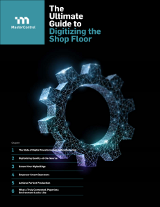
GxP Lifeline
EpiBone Embodies Paperless Efficiencies in Personalized Medicine
Advances in the fields of generative medicine, computational biology and medical imaging are paving the way for personalized medicine, which promises to be a key driver of the combination product market. In 2018 alone, there were a record number of personalized medicines approved, accounting for 42% of all 2018 drug approvals, according to the Personalized Medicine Coalition (PMC). More opportunities remain for personalized medicines to make a significant difference in patients’ lives in the coming years.
Regenerative medicine company EpiBone is among the innovative upstarts looking to harness personalized medicine to improve people’s lives. Based in Brooklyn, N.Y., and regulated by the U.S. Food and Drug Administration (FDA) Center for Biologics Evaluation and Research (CBER), EpiBone is developing living grafts for skeletal reconstruction. The privately held company produces a combination product that is part medical device and part biologic, which must meet FDA 21 CFR 820 requirements.
Starting from a CT scan, EpiBone can extract three-dimensional data to make “a perfect puzzle piece-shape scaffold,” which serves as a template to grow bone and cartilage, Nina Tandon, the company’s CEO and cofounder, explains in <a ?c="349''">a new video. Then, taking from the patient a sample of adipose tissue (i.e., fat tissue), the company extracts stem cells out of it and infuses those cells onto that puzzle piece scaffold inside a system called a bioreactor. And in that environment, the cells “attach to the scaffold, proliferate and most importantly, differentiate” into the tissue EpiBone aims to grow.
“We can take patients’ stem cells and digital fabrication, and we can grow hopefully any part of the body that needs replacement,” Tandon says. “I love that personalized medicine and using the power of our own innate healing can unlock that capacity.”
Prioritizing Quality in Production
EpiBone is about to go into a Phase 1/2 clinical trial for mandibular repair, which is one reason why the company required building quality into the production process early, using MasterControl.
“With early setup of a quality system, we feel much more confident going into a clinical trial, because this is a whole different stage,” according to Sarindr “Ik” Bhumiratana, chief scientific officer at EpiBone. “The product’s going to go into humans. We want to make sure that every single product is safe.”
“Time is the most important resource that we have, so we want to be setting in the beginning processes that could reduce risks downline,” according to QA specialist Julia Porrino.
“I like to use the phrase ‘quality by design,’ that is building quality into the product as you validate and create a product,” says Pete Raghubans, QA manager at EpiBone.
Recognizing that digital, automated efficiencies could help build quality into production and dramatically affect the manufacture of the company’s clinical grade products, EpiBone began looking for a cloud-based solution that would improve the way the company creates and maintains production records.
Eliminating Paper-Based Inefficiencies
“Right around the time that MasterControl started investing more in batch records, that was when we started coming online in our pre-clinical studies needing those,” Tandon says.
By digitizing their production record processes with the Manufacturing Excellence solution, EpiBone can easily build and accurately maintain digital master record templates that virtually mimic paper-based records. The company now has the tools to capture many different data types, perform calculations and time capture, and easily attach visuals. Templates and global elements now automate change management, and production information is more secure but easily accessible for an audit. The paperless solution now corrects data-entry errors in real-time during production, capturing e-signatures every time with correct dates and times.
Where digitizing production records has helped most is in the quality review process. Before implementing the manufacturing solution, it took EpiBone weeks to sign off on paper-based records, and revisions could take a month or longer. As a regenerative medicine company with a personalized approach, EpiBone’s production cycle is about five weeks, and with 14 employees total, efficiency is critical. Now, making revisions takes about a week. With a review-by-exception capability, a production record can close out in 30 minutes. EpiBone now has concurrent review and production, plus the ability to review and release remotely.
Ultimately, digitizing the quality management system and production record process has helped EpiBone proactively address concerns from the FDA, according to Tandon.
“Being able to show that we thought not just one, but two steps ahead in every part of our process really helped us ultimately gain approval,” Tandon says.
To learn more about how EpiBone is using and benefiting from MasterControl Manufacturing Excellence, see ""Q&A: EpiBone on Digitizing and Automating Their Production Records"" on the GxP Lifeline blog and ""Benefiting from Paperless Production Records: A Case Study"" in Orthopedic Design & Technology magazine. To learn how MasterControl helps bridge the digital gaps that exist with paper-based production record processes, register for the March 12 webinar, “Manufacturing Excellence: Fully Digitize Your Production Environment to Drive Smart Manufacturing.”

